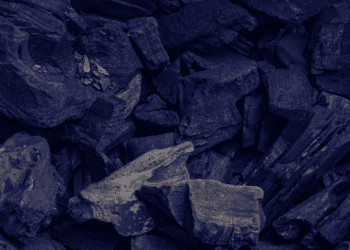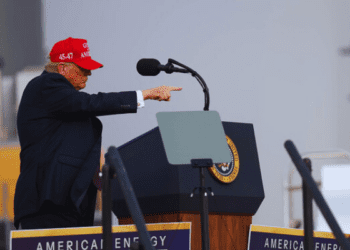January 8, 2013 – MLI’s Philip Cross writes about the incongruity of policymaking in France today in the Financial Post. Full op-ed below:
France’s return to past sinks sclerotic economy
By Philip Cross, Financial Post, January 8, 2013
François Hollande, the president of France, claims to be Mr. Normal. By the standards of France, he may be. He has continued the unbroken string of annual budget deficits that stretch back over 30 years. He wears the anti-business culture of France like a second skin, focusing on preserving ossified existing companies instead of promoting the creation of new ones. No wonder that Gaspard Koenig, a leading libertarian politician in France and former speechwriter for then finance minister Christine Lagarde, called Hollande “the ultimate — and probably also terminal — embodiment of the European-style welfare state.”
The first dramatic gesture he made to his Socialist brethren was to hike the income tax on individuals earning more than €1-million ($1.3-million) to a confiscatory rate of 75%. Even Ontario and Quebec, which raised tax rates on the rich on Jan. 1 to help plug the gaping holes in their budgets, dared not break the 50% barrier, with marginal rates of 49.97% and 49.53% carefully calibrated to stay below the level at which you work more for the government than yourself.
In response to this rampant Jacobinism, the renowned actor Gerald Depardieu renounced his French passport, accepting a Russian passport (in return for calling Russia a democracy, which probably forced him to summon all his acting ability) while taking up residence in Belgium.
In a parting shot to Holland, he said in an open letter that “you think that success, creativity, talent … should be punished.” No word on whether in his next movie he will play George Harrison singing Taxman, a song the Beatles composed in reaction to Britain’s Labour government raising the marginal income tax rate to an extortionary 95% (this also led the Rolling Stones to flee Britain, ironically establishing residence in France, where they recorded Exile on Main St.).
After the ritual accusations by ministers that Depardieu was being selfish and unpatriotic, Hollande weighed in that the solution was greater harmonization of tax rates among EU nations. The problem is that this harmonization won’t be at the rates France wants, not with Germany sitting next door and the French Constitutional Court declaring part of the tax unconstitutional.
The punitive tax hike on the rich was part of a budget that has to meet an EU-mandated target of a deficit no larger than 3% of GDP in 2013 and 2% in 2014. The government decided to try and rein in its deficit mostly with higher taxes and not spending cuts, the opposite of what most economists recommend (money was found for 2,700 inspectors to patrol trains, on the lookout for bad manners, which in France is a national sport). With government revenue projections at risk as growth falters, Moody’s in November followed Standard and Poor in stripping France of its coveted AAA bond rating.
Not surprisingly, the economy has worsened since the Socialists swept into power in May. Unemployment in November hit a record high, nearing 11%. The recovery of GDP stalled over the summer under the weight of lacklustre consumer spending and shrinking industrial output, especially in the beleaguered auto sector. The iconic firm Peugeot Citreon announced 14,000 layoffs, despite €7-billion in bailouts as it teeters on the brink of bankruptcy. The sclerotic state of France’s business sector is best summarized by how no new firm has entered the CAC stock market index of France’s 40 largest companies since it was founded in 1987. This is not “preserving France’s industrial base,” as the government advocates; this is freezing it in the past while the rest of the world innovates.
Other attempts by Hollande to pander to the left quickly fizzled out. He had kicked off his presidential campaign by declaring “my enemy is the world of finance.” He introduced a 0.2% Tobin-style tax on share purchases, but that only succeeded in punishing small investors, as large firms quickly found a way around the tax, using derivatives. Reform of the banking system left the current model of combining commercial and investment banking intact.
The government already appears to be reining in its interventionist tendencies to bolster business confidence, not waiting to complete the usual two years of doomed socialist experiments undertaken by the Mitterand government in France in 1981 or Ontario’s NDP government in 1990 (for those who have forgotten the heady days when the Rae government said it would fight the recession and not the deficit, its popularity soared to 52% in the polls just after the election, lifting the federal NDP to similar lofty heights; two years later, the NDP garnered the support of only 6% of Ontarians in the 1993 federal election). A threatened temporary nationalization of an obsolete ironworks plant in Lorraine was withdrawn when it became clear no buyer was interested at any price. Ditto for an oil refinery in Dunkirk.
This has reduced Industry Minister Arnaud Montebourg to exhorting consumers to buy “Made in France” as his main industrial strategy, as if paying more for French goods will do anything but further drain consumer pocketbooks. Plans by the mayor of Paris to ban cars from parts of the Seine riverbank drew a reminder that this was unhelpful to Peugeot’s predicament. The Gallois commission to restore competitiveness, which it called “a national emergency” now that unit labour costs in France are the second-highest in Europe, elicited a promise of lower payroll taxes but no plan on how to sell lower labour costs to France’s militant union movement.
The incongruity of policymaking in France today is aptly captured by the farce surrounding the Great Hamster of Alsace. The European Court of Justice ruled that this rodent, the last wild hamster in Europe, was endangered. To protect its habitat and avoid a trivial $22-million fine, roads in Alsace have been scrapped and industry expansions cancelled. You wonder if the French government has lost its ability to think clearly: Pay the fine, flush the rodent down the toilet, and get back to business. The main thing really endangered in France is common sense and economic growth.
Philip Cross is research co-ordinator at the Macdonald-Laurier Institute and former chief economic analyst at Statistics Canada.
Financial Post
—




